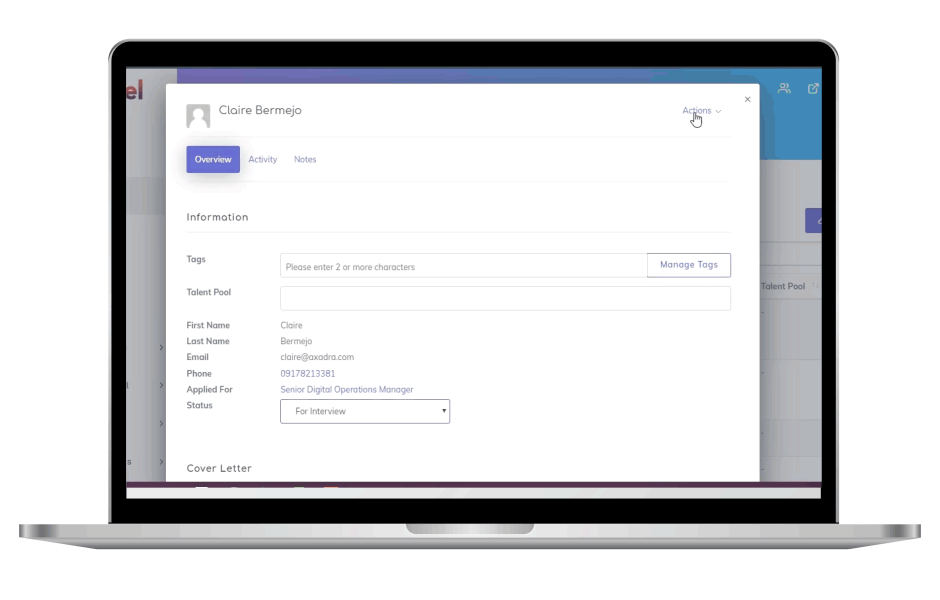In the competitive landscape of the modern job market, attracting top talent is no small feat. Even with the help of recruitment automation software and other tools, companies are constantly on the lookout for ways to stand out, captivate potential employees, and build a team of high-performing individuals.
One of the most effective tools in this quest is the employer value proposition (EVP). This article explores what an EVP is, why it is essential, its key components, and how it can help organizations entice the cream of the talent crop.
What is Employer Value Proposition?
Before we delve into the significance and intricacies of an employer value proposition, let’s clarify its definition. An EVP is the unique set of offerings and benefits that an employer provides to its employees in exchange for their skills, experience, and dedication. In simpler terms, it’s the list of what candidates want from you as an employer.
Your EVP is not just a slogan or a catchy tagline; it is the embodiment of your company’s culture, values, and the total package you offer to your employees. This can include a combination of tangible benefits like salary and perks and intangible factors such as the work environment, company culture, and opportunities for personal and professional growth.
Why Do You Need an Employer Value Proposition?
In a world where the war for talent is fierce, an EVP is your secret weapon. It’s a crucial element in attracting and retaining top talents for several reasons:
- Competitive Edge: A well-crafted EVP gives your company a distinct advantage over competitors. It sets you apart as an employer of choice in a crowded job market.
- Employee Retention: Your EVP also plays a significant role in retaining your current workforce. When employees feel valued and engaged, they are more likely to stay with the organization, reducing turnover and the associated costs.
- Boosted Productivity: Employees who feel their employer is investing in their well-being and development are more engaged and motivated. This translates into higher productivity and better business outcomes.
- Enhanced Company Reputation: A strong EVP positively impacts your brand image, not only as a product or service provider but as an employer. This can lead to stronger customer and investor trust.
Parts of an Employer Value Proposition
Creating an effective EVP involves identifying the key elements that make your organization unique and attractive to potential employees. Here are three essential parts of an EVP:
- Status Quo: This part reflects what you currently offer to your employees. It includes compensation, benefits, and any existing unique perks your company provides. Essentially, it outlines why your organization is already a great place to work.
- Key Differentiator: What sets you apart from your competitors? This component of your EVP highlights the unique aspects of your organization that make you stand out in the eyes of potential employees.
- Your Strategic Goals: This part of your EVP outlines your long-term vision for your employees. It communicates your commitment to their growth and development, giving them a sense of security and purpose.
How an Employer Brand Proposition Can Help You Attract Top Talent
An effectively communicated EVP can work wonders when it comes to attracting top talent. Here’s how it accomplishes this:
- Attracts the Right Candidates: By clearly defining what your organization stands for and what it offers, your EVP ensures that potential candidates who align with your values and goals are more likely to apply.
- Drives Employee Referrals: When your current employees are engaged and feel valued, they become your best brand ambassadors. They’re more likely to refer high-quality candidates to your organization.
- Enhances the Interview Experience: During interviews, your EVP serves as a powerful tool for communicating your company’s strengths and opportunities, creating a favorable impression on candidates.
- Boosts Job Acceptance Rates: Candidates who can clearly see the value your organization offers are more likely to accept your job offers, reducing the risk of losing top talent to competitors.
Should You Create a Different Employer Value Proposition for Every Role?
The short answer is no. While you can tailor certain aspects of your EVP to specific roles or departments, the core of your EVP should remain consistent across the organization. This consistency builds a strong, unified brand image and culture.
However, it’s essential to acknowledge that different roles may have different priorities and concerns. Tailoring some aspects of your EVP, like job-specific benefits when hiring interns or executives or growth opportunities, can be a valuable approach. Still, the fundamental principles should remain the same to maintain a cohesive employer brand.
Tips for Creating an Employer Value Proposition
Now that we’ve established the importance of an EVP, let’s look at some tips to help you create a compelling one:
Identify Your Strengths
Begin by identifying the unique strengths and qualities of your organization. What makes you stand out in your industry, and why would someone want to work for you? Focus on these strengths when crafting your EVP.
Start with Your Salary Offer
Salary is a significant factor for many job seekers. Ensure that your compensation packages are competitive and reflect the market rates. However, if you can’t compete with the compensation packages offered by other organizations, you can focus on your company’s other unique selling points.
Highlight Your Work Environment
Emphasize the work environment you provide. Do you have a flexible work schedule, a remote-friendly policy, or a state-of-the-art office space? Highlight these aspects to showcase your workplace as a great place to be.
Promote Your Work Culture
Your company culture is a vital part of your EVP. Describe your values, diversity and inclusion initiatives, and any unique cultural elements that set your organization apart. This can help potential employees choose your company over your competitors.
Talk About Career Progression
Most employees are interested in their growth potential within an organization. Outline your commitment to their professional development, whether it’s through training, mentorship programs, or advancement opportunities.
Establish Job Security
Job security is a significant concern for many individuals because nobody wants to be out of a job after a few months. If your organization offers stability, be sure to communicate this in your EVP. You’re sure to attract top candidates looking for job security.
Attract and Retain Top Talents
In a world where talent is a precious resource, the employer value proposition is the key to attracting and retaining top talent. It’s not just a marketing gimmick; it’s a genuine reflection of your organization’s culture, values, and the total package you offer to your employees.
Craft your EVP carefully, keeping in mind the status quo, your key differentiator, and your strategic goals. With a compelling EVP, your organization can rise above the competition and draw the best talent to help you achieve your goals and drive success.



















